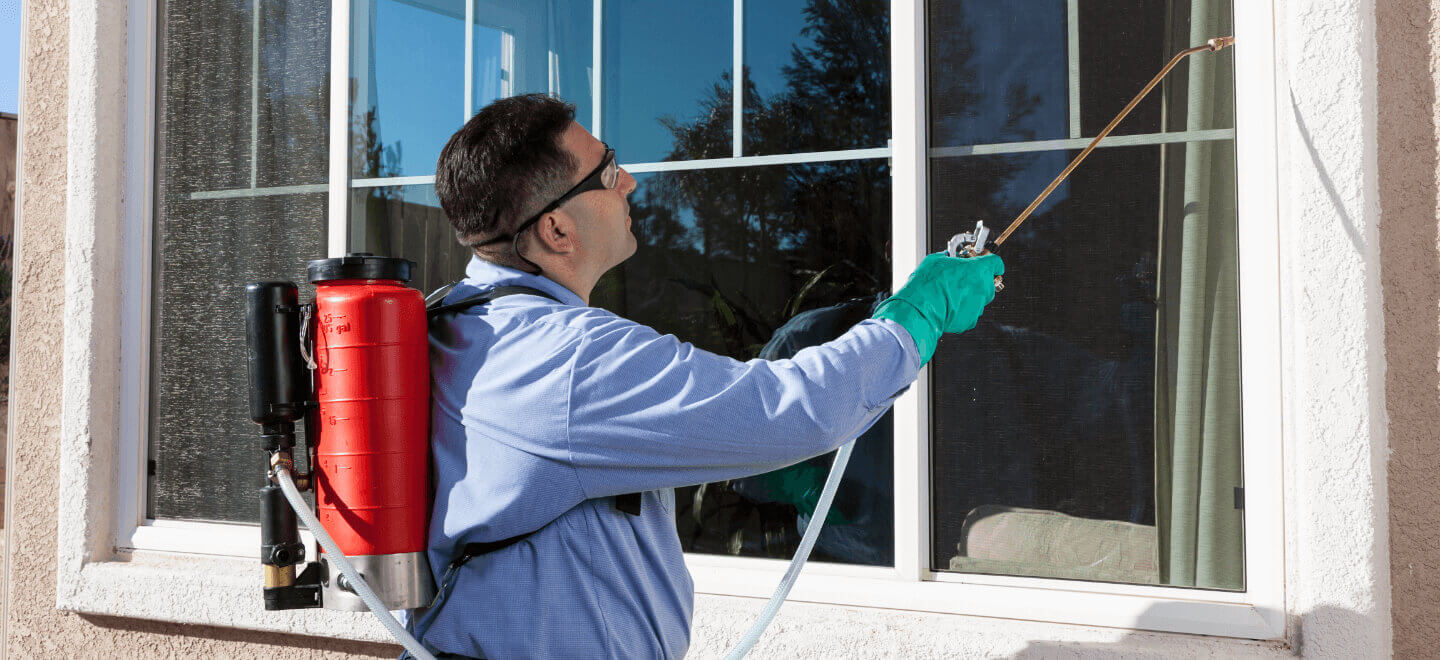Experienced A1 Exterminators Charlotte NC - Rapid and Reliable Solutions
Experienced A1 Exterminators Charlotte NC - Rapid and Reliable Solutions
Blog Article
Bed Insect Therapy Failure: Comparing Chemical Vs. Non-Chemical Solutions
In the world of parasite control, particularly when taking care of the consistent concern of bed insects, the selection in between chemical and non-chemical therapy services can be a critical one. Both approaches supply unique advantages and downsides, affecting factors such as efficiency, safety factors to consider, and overall price. By checking out the nuanced details of each approach, a more clear understanding of which path to pursue in attending to a bed pest problem can be attained.
Effectiveness of Chemical Treatments
Chemical therapies for bed insect problems have actually been commonly identified for their potent and rapid efficiency in getting rid of these bugs. When thinking about the effectiveness of chemical treatments, it is vital to understand that they can give a fast and complete remedy to a bed pest issue.
In addition, chemical therapies have the advantage of supplying residual impacts, indicating that they can continue to get rid of bed bugs also after the preliminary application. This residual activity is especially advantageous in combating any potential re-infestations. Furthermore, the quick activity of chemical therapies can bring relief to individuals facing serious bed bug infestations, permitting them to regain control of their space promptly.
Security Interest In Chemical Solutions
One crucial facet that requires mindful factor to consider when utilizing chemical services for bed pest therapy is guaranteeing the security of owners and the environment. While chemical treatments can be reliable in eradicating bed pests, they might position threats otherwise handled appropriately. One of the primary safety and security interest in chemical services is the potential damage they can create to human health. Direct exposure to particular chemicals made use of in bed bug treatments can bring about breathing issues, skin inflammation, or various other adverse reactions, particularly in individuals with pre-existing problems or sensitivities. In addition, incorrect application or dosage of chemical pesticides can lead to hazardous residues lingering in the cured area, posing long-lasting health and wellness dangers to passengers.
Furthermore, the environmental impact of chemical services is an additional substantial consideration. Some chemicals made use of in bed pest treatments might be dangerous to helpful bugs, wildlife, and ecological communities if they seep into the dirt or water supply. It is necessary to use chemical therapies deliberately, adhering to safety standards, and taking into consideration much less poisonous choices to reduce these threats and make certain the secure and reliable management of bed bug problems.
Benefits of Non-Chemical Approaches
Considering the potential security problems and ecological impact related to chemical options for bed insect treatment, checking out non-chemical methods presents a promising choice with a number of distinct benefits. Non-chemical methods use a more secure choice for houses, particularly those with family pets, children, or people sensitive to extreme chemicals. These methods remove the risks of direct exposure to toxic compounds, minimizing the capacity for negative health and wellness impacts. Furthermore, non-chemical therapies are environmentally friendly, as they do not add to air or water contamination, making them a sustainable option for parasite control.
Furthermore, non-chemical remedies can be effective in targeting bed pests, including hard-to-reach locations where chemical therapies may not penetrate - A1 bed bug treatment in charlotte. Techniques such as warmth treatment, vacuuming, heavy steam cleaning, and cushion encasements give thorough obliteration without the use of damaging chemicals.
Limitations of Non-Chemical Treatments

In addition, non-chemical treatments frequently need numerous applications to achieve successful obliteration. This can be time-consuming and might not always assure full elimination of all bed insects and their eggs, especially in covert or hard-to-reach locations.
Moreover, the success of non-chemical therapies greatly counts on proper implementation and thoroughness, which can be challenging for people without specialist expertise. Inadequate application of non-chemical methods may cause incomplete eradication, bring about persistent infestations and the demand for additional therapies.
Therefore, while non-chemical treatments have their advantages, it is vital to recognize these limitations and consider them when identifying pop over to this web-site the most efficient strategy for taking care of bed bug invasions.
Expense Comparison: Chemical Vs. Non-Chemical Options
Offered the constraints connected with non-chemical therapies, an important aspect to evaluate in the context of bed bug management is the cost contrast between chemical and non-chemical options. Chemical therapies generally entail the application of pesticides by professionals, which can vary from $250 to $900 per room, relying on the intensity of the infestation and the dimension of the area to be treated. In comparison, non-chemical treatments like heat therapy or vapor can be a lot more costly, with prices ranging from $1,000 to $6,000 for an entire home. While the initial expense of chemical therapies may seem lower, numerous treatments might be called for to fully eradicate the infestation, possibly raising the total expense. On the other hand, non-chemical options might provide a much more lasting and eco-friendly service, although they can be cost-prohibitive for some people. Inevitably, when considering the price of bed pest treatment options, it is vital to evaluate the in advance expenditures versus the efficiency and long-lasting sustainability of the selected method.
Conclusion

Considering the prospective safety problems and ecological effect connected with chemical services for bed bug treatment, exploring non-chemical methods provides an encouraging option with several unique benefits.Provided the restrictions linked with non-chemical therapies, an important facet to evaluate in the context of bed insect monitoring is the price comparison in between chemical and non-chemical visite site options. In contrast, non-chemical therapies like warm therapy or vapor can be a lot more expensive, with prices ranging from $1,000 to $6,000 for a whole home. While the first expense of chemical therapies might appear reduced, multiple therapies may be needed to totally eliminate the problem, possibly increasing the overall price.In conclusion, when contrasting chemical and non-chemical bed pest treatment find out here alternatives, it is necessary to take into consideration performance, safety and security, advantages, constraints, and price.
Report this page